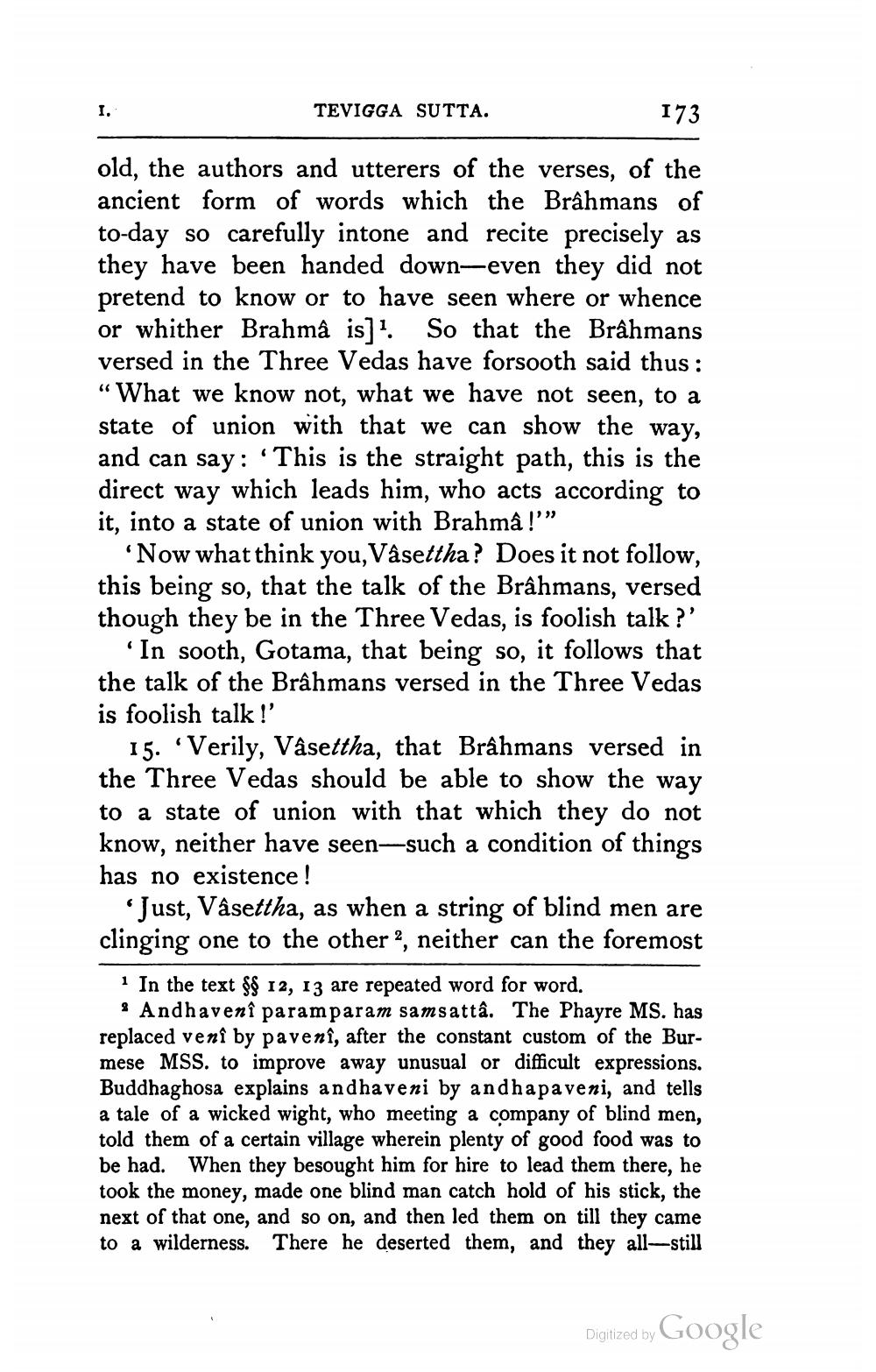________________
TEVIGGA SUTTA.
173
old, the authors and utterers of the verses, of the ancient form of words which the Brâhmans of to-day so carefully intone and recite precisely as they have been handed down-even they did not pretend to know or to have seen where or whence or whither Brahma is]". So that the Brâhmans versed in the Three Vedas have forsooth said thus : “What we know not, what we have not seen, to a state of union with that we can show the way, and can say: 'This is the straight path, this is the direct way which leads him, who acts according to it, into a state of union with Brahmâ !'”
Now what think you, Vasettha ? Does it not follow, this being so, that the talk of the Brâhmans, versed though they be in the Three Vedas, is foolish talk ?'
'In sooth, Gotama, that being so, it follows that the talk of the Brâhmans versed in the Three Vedas is foolish talk !
15. Verily, Vâsettha, that Brahmans versed in the Three Vedas should be able to show the way to a state of union with that which they do not know, neither have seen-such a condition of things has no existence!
• Just, Vâsettha, as when a string of blind men are clinging one to the other ?, neither can the foremost
1 In the text $$ 12, 13 are repeated word for word.
* Andhavenî paramparam samsattâ. The Phayre MS. has replaced venî by pavenî, after the constant custom of the Burmese MSS. to improve away unusual or difficult expressions. Buddhaghosa explains andhaveni by andhapaveni, and tells a tale of a wicked wight, who meeting a company of blind men, told them of a certain village wherein plenty of good food was to be had. When they besought him for hire to lead them there, he took the money, made one blind man catch hold of his stick, the next of that one, and so on, and then led them on till they came to a wilderness. There he deserted them, and they all-still
Digitized by Google




